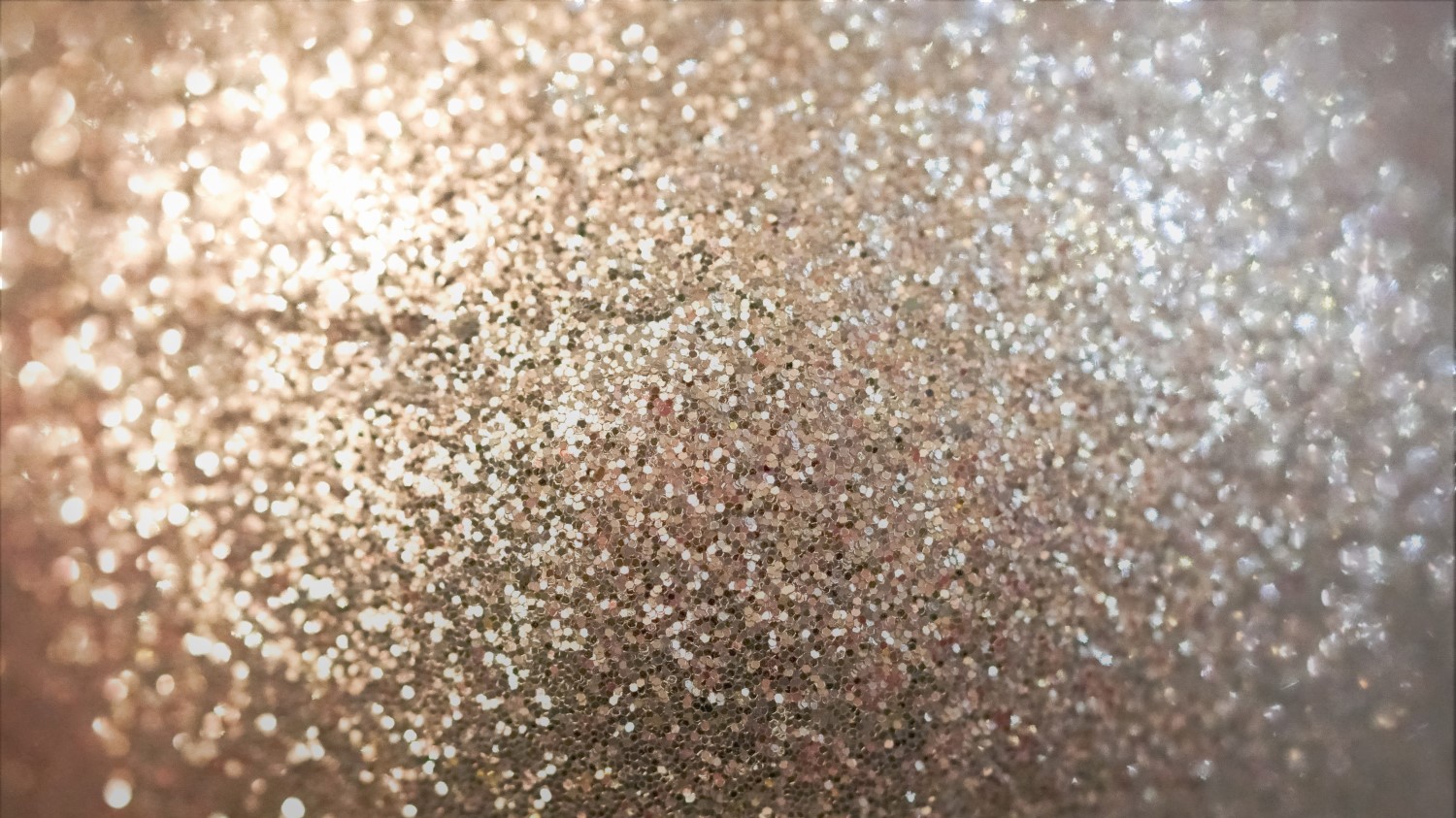Formulate user Brenda wants to know what's up with shiny skin:
Lately I've noticed that my forehead is always super shiny. All of my face is kind of shiny, but my forehead is especially bad. It's gotten to the point where it's a little embarrassing. I've stopped wearing sunscreen everyday, and that's helped a little bit, but should I try switching up my cleanser and toner too? Maybe the products I'm using are making it worse, is that a thing? Anyway, I'd like to find a way to get it back into ~natural glow territory. What are some ways that I can manage my stupid shiny forehead, both so that my makeup stops sliding off and so that the shininess stops in the long term? I'm willing to go see a dermatologist, but I'd like to do it on my own if that's possible. PS - this is kind of related, I've noticed right after I wash my face that it's shiny, but in a way that's clean and shiny, rather than shiny forehead oily shiny. Any idea why that happens?
Thanks for writing, Brenda! You've got a ton of great questions in there. We'll break them down, one by one to help you manage your shiny skin more effectively.
What causes a shiny forehead to be shiny?
All in all, some of us are just more prone to shiny skin than others. There are many different potential contributors.
Dr. Cheryl Rosen, Director of Dermatology at Bowtied Life, shares, "Shiny skin is caused by the oil glands on your face overproducing sebum. Sebum is the body's natural moisturizing agent and its main purpose is to help keep your skin soft, supple and healthy. However, if your glands get overactive, you will experience shiny skin. Acne, rosacea, seborrhea, and psoriasis are all conditions that may cause the skin to look shiny. Oily skin and excessive sweating can also make the skin look shiny."
Celebrity Event Designer and Licensed Cosmetologist Samantha Goldberg shares that shiny skin can also be related to genetic heritage: "Some people naturally have oily skin by descent from eastern countries. Asians tend to have more sebaceous glands, which are responsible for sebum (oil) production. With more glands, your skin is naturally inclined to accumulate extra buildup and have a shinier complexion. Therefore, you may need to take a few additional steps to clear your pores and control shine."
Can skincare products cause shiny skin?
Some skincare products can contribute to shiny skin. For example, overly harsh cleansers are a common contributor to shiny skin. "The skin might be overactive due to cleansing with a harsh surfactant such as sodium laureth sulfate," shares Goldberg. "This one ingredient is used in laundry detergent but at a lesser grade. Less invasive cleansing might correct the shine issue overall." This problem is so common that Goldberg has come to refer to the phenomenon of harsh cleansers causing skin to produce excess sebum as "product induced shine". Check your cleanser to see what kind of cleansing agent it contains. If it's sulfate based or otherwise leaves your skin feeling tight or overly squeaky clean, your cleanser might be a smidge too strong. Switching to a cleanser with a less harsh surfactant could help your skin better regulate how much oil it produces.
While they won't stimulate oil production in the same way that harsh cleansers do, some products add shine to the face. This worsens any pre-existing shininess. Dr. Rosen advises, "Products that contain silicone oil or dimethicone can cause the skin to look shiny. Sunscreen products that contain titanium dioxide or zinc oxide can also cause the skin to look shiny." While these products likely won't cause your skin to become more oily long-term, they may cause your face to appear shiny until they are rinsed off.
What's the difference between a natural glow and shiny skin?
We all want radiant, glowing skin, but none of us want shiny skin. What's the difference, anyway?
"Healthy skin shines from within, whereas oily or dry skin can look more like a reflective surface," shares Dr. Rosen. "One of the key differences between shiny skin and natural glow is that shiny skin usually has a greater contrast between the highlight and shadow areas. A glowing face will have less of a contrast." Glowing skin typically is because the skin is in good condition and moisturized, whereas shine is generally some form of oil or sweat production on the skin's surface.
Jenni Swedlund, a representative of the medical professionals at Viva Day Spa + Med Spa, shares, "We all know that celebrities pay good money to have an ethereal glow to their skin and beauty companies certainly profit from all types of products to add a more luminous complexion to skin. But there is decidedly a difference between 'glow' and 'shine'. Shiny skin can feel greasy, almost as if oil is dripping off your face. In contrast, that celeb glow is light, airy, and has just a touch of iridescence." Shine is wet, while glow is bright and a little misty.
Is shiny skin always a bad thing?
Contrary to popular belief, shiny skin actually has quite a few advantages. Per Goldberg: "It does have benefits, one being the skin tends to be tougher and two, aging is not so rapid you won't exhibit fine lines as early as someone with a dryer skin type. I would say this skin type, while a pain for some, can be managed and has its own form of a healthy shine." While shiny skin can certainly feel inconvenient, it's not exactly a bad thing to have a built-in moisturizing system working for you around the clock.
What's up with the kind of shine that you get sometimes right after you wash your face, where your skin doesn't look oily, it's just... shiny?
If you've experienced the phenomenon of your skin looking squeaky-clean shiny right after you shower, you're not alone. Per Swedlund: "That shiny look you get right after you wash your face is simply the water soaking your epidermis. That moisture will quickly fade though if you don't add products to help keep it in place. That's why your face always feels moisturized just after you wash your face but starts to feel tight after a few minutes."
This healthy-looking shininess may be even more dramatic if you've just exfoliated. Goldberg says that's because "when you cleanse your skin with an exfoliant type cleanser, it tends to remove the top layer of the skin releasing a new layer which can tend to shine without the extra oil production." To get this effect, she advises using a powder exfoliator since they are less harsh and good for most skin types.
Should you see a doctor/skincare professional to help with shiny skin?
"The first thing I would suggest is going to a dermatologist or aesthetician!" shares Goldberg. "We need to figure out if you're caring for your skin the right way. Meaning, we can tell under the lamp and scope if your skin is properly nourished. Once we make a diagnosis your skincare may change to reflect your skin's needs." If the skin is shiny because of excessive sweating or excessive oiliness, your doctor may be able to help by prescribing a topical medication.
How do you stop makeup from melting off of a shiny forehead?
Managing shiny skin can be a challenge, but it can be manageable. Dr. Rosen recommends three main strategies for wearing makeup on shiny skin: "Use an oil-free or lightweight foundation primer before applying your makeup. This will help to absorb any oils on the skin and help to mattify the complexion. Avoid using too much powder as it can cake on the skin and make it look even shinier. Try using a translucent powder instead. If you have oily skin, avoid using heavy cream-based products as they will only make the problem worse. Try using lightweight products that are water-based instead."
What skincare products should you use on shiny skin?
Swedlund has several recommendations for skincare products. "Look for a cleanser that has a foaming quality to it, they're best for combating oil. Stay away from cream and oil formulations. Toner is also a great skincare staple for oily skin. It can help banish sebum and adds important skincare elements back into skin to help regulate oil production. Be sure your moisturizer isn't too heavy; you'll want something light. A serum-style moisturizer is a great fit for oily skin. You can also carry blotting papers with you on the go for spot treatments during the day." Goldberg adds, "A little tip I learned was a puff of rice powder, kaolin or cornstarch on your face, are just a few powders with no color and are fabulous one-stop shop ingredients used to absorb overly oily glands." Such powders can be helpful for on-the-spot touch-ups during the middle of the day.
Wanna learn more about the world of skin and hair care? Here's your next read:
Frizzy Curly Hair Care 101
How to defrizz your curls and get 'em back into shape!
Hot Rollers Vs. Curling Irons
What's the difference between hot rollers and curling irons?
Difference Between a Mole and a Freckle
What's the difference between a mole and a freckle?
Moisturizer vs Lotion: What's the difference?
Can you use body lotion on your face?
Tips For Washing Hair In Hard Water
This is your guide to washing your hair in hard water
Minimalist Hair
Welcome to the wonderful world of minimalist hair
Type of Combs: Materials and Shapes
Your complete guide to picking out a comb


